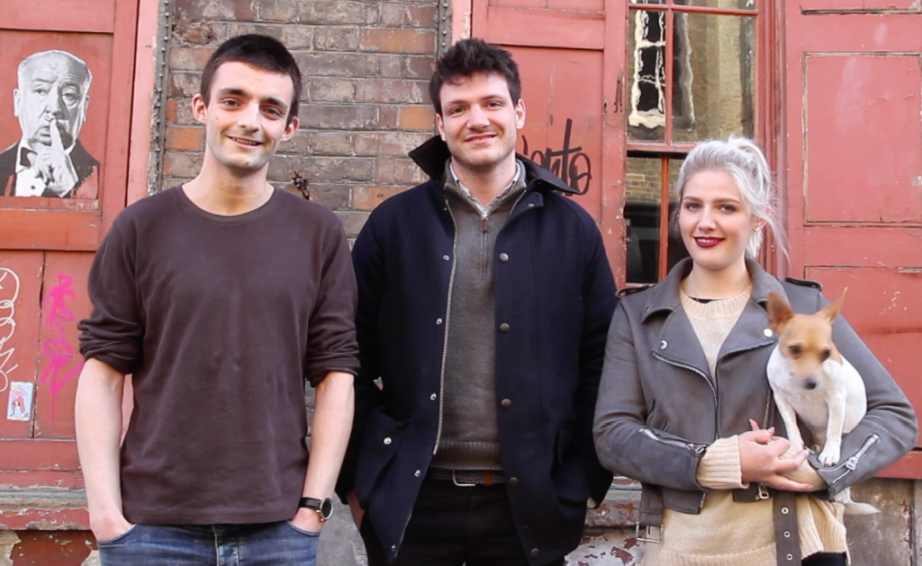Fat Llama, the world’s largest item rental marketplace, launches “Shopify for rental” service platform that lets retailers rent goods to customers

As businesses feel the pressure from consumers to be sustainable, as well as short-term renting being at an all-time high, the practice of renting items is becoming increasingly popular. Retailers are also realizing that more sustainable practices — practices that include renting, reselling items, and recycling, are a growing priority for discerning customers.
There has also been a substantial shift towards customers who care more about experiences and access than ownership. Furthermore, the number of homeowners is shrinking as the number of private tenants is on the rise which creates more of a demand for shorter-term ownership of items.
That’s why London-based e-commerce startup Fat Llama – the world’s largest item rental marketplace – has stepped up to help the high-street reinvent itself in the wake of Covid and to appeal to the millennial/Gen Z audience with the launch of its enterprise rental software.
Today, Fat Llama announced the launch of a new enterprise platform to allow household name retail partners to lend their products to customers to shift the way we shop. Within days of the announcement, Fat Llama is experiencing a waiting list of more retailers desperate to join in on the sharing economy.
Founded in 2016 by Chaz Englander, Owen Turner-Major, and Rosie Dallas, Fat Llama is the first fully-insured peer-to-peer rental marketplace that allows people to rent spare items to others nearby, fully insured. Often dubbed “The Airbnb for things”, Fat Llama has since grown to be the biggest item rental marketplace in the world.
From their platform, you can rent pretty much anything from cameras to scooters, with a protection guarantee of up to £25,000 per item. During the 2020 coronavirus pandemic Fat Llama built out their business-to-business offering through Fat Llama’s Enterprise software, which allows partners to lend out their products to customers with minimal technical and operational integration.
Fat Llama Enterprise is the latest B2B offering that allows retail partners, including at launch the likes of John Lewis, Sofology, and more, to lend their products to customers who want to shop in ways that better suit their lifestyles and needs. Over the last year, businesses have felt pressure from consumer-conscious customers to develop environmentally sustainable consumer models. While this trend accelerated during the pandemic, according to consulting firm PwC, the trend is here to stay.
To put the rise in demand and discernibility into perspective, during an eight-week trial, Fat Llama Enterprise enabled John Lewis to sell out its entire rental inventory in the first 48 hours. This partnership allowed customers to rent bedside tables, beds, shelving units, cabinets, and more for as little as £14 a month. The partnership with Sofology, for its Loop initiative, allows customers to rent the brand’s new Virtue range of sofas, armchairs, and footstools for as little as £20 a month.
This means that tapping into the sharing economy is crucial for all retailers, globally, if they want to keep their brand both compelling and meaningful to the next generation and stay in business. Since the hugely successful John Lewis trial and the launch of the Sofology Loop initiative, Fat Llama is getting weekly inbounds from retailers across the world looking to enter this space and the marketplace currently has a waiting list for global retailers that it is partnering with.
“Shopify for rental”: The rental-as-a-service innovation
Fat Llama’s Enterprise software has been designed to empower retailers to make the shift to a more sustainable, in-demand offering without wrangling all the complex technological and regulatory issues that come with it. Namely, the building of an entire rental platform within their existing sales channels, and the need to manage verification requirements and customer payments.
Fat Llama Enterprise builds within hours – branded online shop fronts that sit within the retailer’s existing online presences and which list a retailer’s selected items for rent. Once built, the software handles the entire end-to-end customer journey, from landing page through to checkout, and, as its name suggests, is flexible enough to adapt to any customer service and logistics platform used by retailers. Most importantly, the software includes Fat Llama’s sophisticated verification system and ensures that all items for rent are fully insured.
The brand’s new Fat Llama Enterprise service comes off the back of the Ellen MacArthur Foundation reporting that the circular economy could be worth 1.8 trillion EUR (1.5 trillion GBP). Over the past 12 months, more brands globally have entered this space in a bid to focus more acutely on sustainable retail.
Beyond John Lewis and DFS’ partnerships with Fat Llama, Selfridges recently made a bid to tackle fast-fashion with the launch of its own Rental Collection, in partnership with fashion lending service HURR. Brazilian-based eStok recently identified a 1.9 billion GBP untapped opportunity in the renting and resale of electronics returned due to a flaw or imperfection. Swedish giant Ikea introduced its furniture buy-back program.
Chaz Englander – CoFounder and CEO said; “The pandemic has forced companies to reevaluate what is important to their customers. Increasingly young consumers are looking to reduce their carbon footprint, and they expect retailers to follow suit. Rental as a service is a step in the right direction. Our platform allows our business partners to lend their products to customers with little to no technical and operational integration.”




